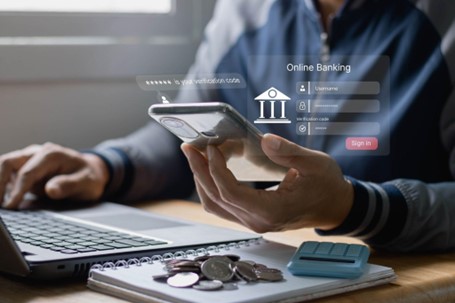
7 Crucial Tips to Lock Down Online Checking Account Security
Managing finances online is convenient and essential to modern life but comes with risks. Online checking accounts hold valuable personal and financial data, making them a prime target for hackers and cybercriminals. Taking the right steps to secure your account is necessary to protect sensitive information and avoid potential losses.
Here are seven crucial tips to help you secure your online checking account and minimize the chances of unauthorized access:
Set Strong Login Credentials
Creating a strong and unique password is the first and most important step in securing your online checking account. A weak password is like an open door for hackers. Your password should contain at least 12 characters and combine uppercase and lowercase letters, numbers, and symbols. Avoid easy-to-guess options like dictionary words or personal details such as names, birthdates, or common words.
Keep Account Details Private
It's important to keep your account details strictly confidential. Never share your account numbers, passwords, PINs, or any other login information with anyone,including bank representatives who contact you unexpectedly. Scammers often pose as legitimate companies to trick you into providing personal information.
Review Account Activity Frequently
Logging in regularly to check statements and transaction histories can help quickly catch unauthorized activity before major issues occur. Frequent monitoring is key for early threat detection. Set a routine to log in and review your bank statements and transaction histories.
Only Access Accounts on Secured Networks
Use private Wi-Fi networks with password protection exclusively to access online checking. Avoid public hotspots, which can expose data to snooping. Unsecured connections greatly raise risks. Stick to private, password-protected Wi-Fi connections, especially when accessing sensitive financial information.
Install Comprehensive Security Suites
Protect all devices used for online banking with sophisticated security software. Install security suites that provide features like malware detection, encrypted data transmissions, and firewalls to guard against cyberattacks that attempt to steal credentials or financial information.
Be Wary of Phishing Attempts
Carefully scrutinize emails, texts, or calls asking for personal information or directing click-throughs to add links. These likely indicate scam attempts to phish for data. Never disclose details or access links through unsolicited communications.
Quickly Report Suspicious Activity
If any unauthorized transactions or access attempts are ever detected, immediately contact your bank to freeze the account and initiate resolution procedures. Quick reporting can help prevent further damage and increase the chances of recovering lost funds.
Secure Your Online Checking Account
Protecting sensitive financial data should be a priority in an age of digital banking. The more effort you put into securing your account now, the less likely you'll have to deal with potential threats later. Staying vigilant in following these seven vital safety tips can dramatically reduce risks like fraud and identity theft affecting online checking accounts. Prioritizing strong passwords, network security, account monitoring, and threat awareness helps keep sensitive financial data safe.

